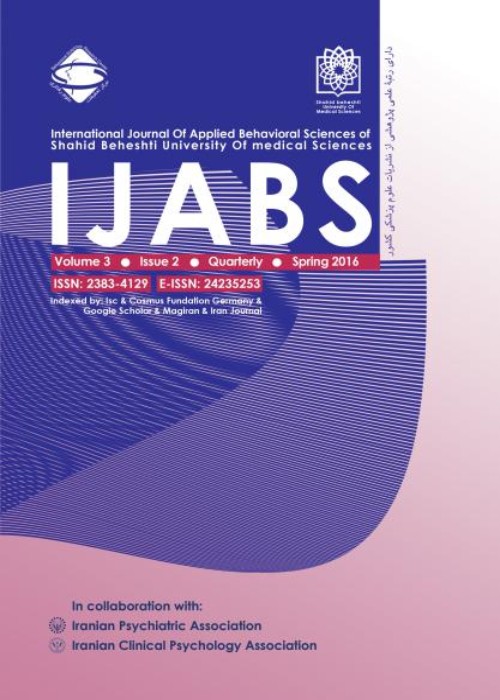The Relationship Between Deficits in Executive Functions and Processing Speed with PTSD Symptoms in Cancer Patients: The Mediating Role of Fatigue and Attention Bias
The rapid and increasing growth of cancer disease in developed and developing countries and its multi-factorial and destructive personal, social and economic consequences have drawn this disease as a deliberate problem that threatens people's mental health, drawing special attention from specialists and researchers in the health field.. theaim of this research is to analyze the relationship between deficits in "executive function" and "processing speed" with "PTSD symptoms" in cancer patients, by examining the mediating role of fatigue and attention bias.
This research was conducted by the path analysis-correlation method. Its statistical universe was all patients with gastrointestinal cancers (esophagus, stomach, colon, liver, and pancreas) referring to Tehran hospitals and medical centers (Iran) in the first six months of 2022. The statistical sample of this research was 158 men and women referring to two referal hospitals, who were selected for convenience sampling and participated in this research after obtaining informed consent. The research has used the post-traumatic stress disorder checklist (PCL-5), the Barkley Deficit in Executive Functioning Scale (BDEFS), Cancer Fatigue Scale (CFS), the Attention to Positive and Negative Information Scale (APNIS), and the Wechsler Adult Intelligence Scale (WAIS). The research data was tested using structural equation modeling method (path analysis); SPSS version 21 statistical software and Lisrel software were used to analyze the data.
According to the results of the path analysis, the direct path of the "executive function" ( β=-0.249, T=-3.328), the direct path of the "cancer fatigue (CRF)" (β=0.31, T=64.979), and the direct path of "positive attention bias"(β=-0.341, T=-4.648), " to the "PTSD symptom" is significant. However, the direct path of the "processing speed"(β=-0.024, T=-0.501) and the direct path of "negative attention bias" (β=-0.104, T=-1.774) to the "PTSD symptom" are not significant.The direct path of "executive function" to "cancer fatigue" (β=0.623, T=10.081) is significant, but, the direct path of the "processing speed" to "cancer fatigue" (β=0.119, T=1.932), direct path of "processing speed" to "positive attention bias" (β =-0.008, T=-0.132) and direct path of "executive function" to (β=-0.367, T=-4.782) to "negative attention bias" is insignificant.Moreover, according to the results, the indirect effect of the "executive functions" on the "PTSD symptoms" through "positive attention bias" is significant (b=0.077, P<0.05); but, the indirect effect of the "executive functions" on the "PTSD symptoms" through "negative attention bias" is not significant (b=0.013, P>0.05). The indirect effect of the "processing speed" to the "PTSD symptoms" through " cancer fatigue"(b=0.066, P>0.05), the indirect effect of the "processing speed" to the "PTSD symptoms" through "positive attention bias"(b=0.005, P>0.05), and the indirect effect of the "processing speed" to the "PTSD symptoms" through "negative attention bias" is not significant (b=-0.001, p>0.05).
According to the existing research evidence, people show different reactions after being diagnosed with cancer, and during the treatment process, as a traumatic event.Considering the research results, it can be concluded that the experience of cancer-related stress disorder is influenced by cancer fatigue (CRF), information processing speed, and positive and negative attention bias. These results can be the basis for designing an intervention program to reduce symptoms of post-traumatic stress disorder (PTSD) in people with cancer, especially gastrointestinal cancers.
- حق عضویت دریافتی صرف حمایت از نشریات عضو و نگهداری، تکمیل و توسعه مگیران میشود.
- پرداخت حق اشتراک و دانلود مقالات اجازه بازنشر آن در سایر رسانههای چاپی و دیجیتال را به کاربر نمیدهد.


